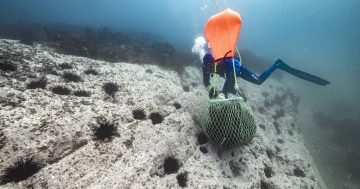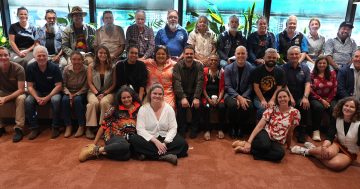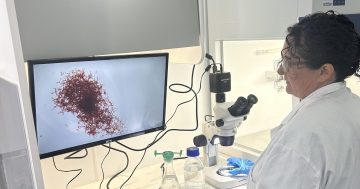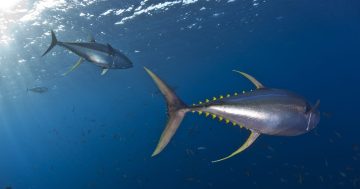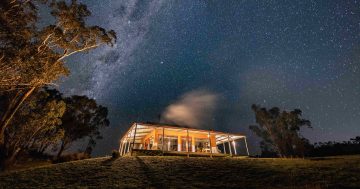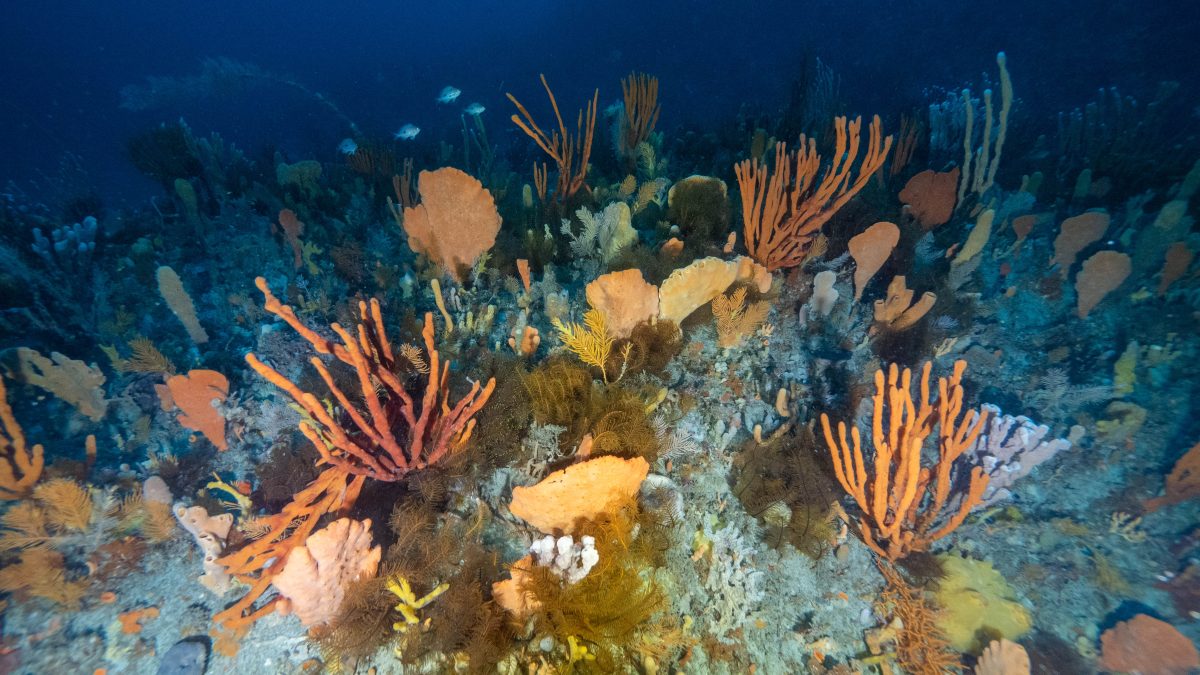
Deep sponge gardens in the Great Southern Reef are threatened as long-spined sea urchins overgraze kelp forests. Photo: Stefan Andrews, courtesy Great Southern Reef Foundation.
A powerful documentary is spreading the word about the destruction of kelp forests on Australia’s southeast coast due to overgrazing by long-spined sea urchins.
These voracious feeders and breeders are native to Australia, but climate change is causing them to spread further south.
In the documentary White Rock, Professor Maria Byrne from the Sydney Institute of Marine Science at the University of Sydney says the kelp forests along 2000 kilometres of coastline have been decimated by sea urchins.
That is a quarter of the Great Southern Reef that spans the southern half of Australia’s coastline. The reef is one of the most diverse and valuable marine ecosystems on the planet. The kelp provides habitat for an incredible range of species, plus absorbs carbon dioxide and filters water.
The Great Southern Reef Foundation (GSRF) was moved to make White Rock 13 months ago after speaking with scientists, the abalone industry, and politicians.
GSRF co-founder and director of White Rock Stefan Andrews said a federal Senate inquiry into the problem recommended in November 2023 that $55 million be invested into a five-year national taskforce but politicians had not acted.
“They were clear we needed more people talking about it and understanding the sea urchin issue,” Mr Andrews said at a community screening of White Rock in Narooma. “Then and only then will they give funding.”
The documentary was filmed at Narooma’s Barunguba Montague Island, Victoria and Tasmania. It features interviews with scientists, abalone and sea urchin divers, First Nations people, chefs, and investors.

Mammals such as the Australian fur seals at Barunguba Montague Island will have no food left as urchin barrens replace kelp forests. Photo: Gergo Rugli, courtesy Great Southern Reef Foundation.
Scott Ling of the University of Tasmania’s Institute for Marine and Antarctic Studies (IMAS) said there were no sea urchins in Tasmania’s Fortescue Bay in 1998.
In the early 2000s an IMAS coast-wide survey found slightly more than five million sea urchins. Surveys in 2016 and 2017 found the number had ballooned to more than 20 million.
“Their abundance per hectare is in the thousands which is far higher than say the crown of thorns starfish that would trigger an outbreak on the Great Barrier Reef,” Mr Ling said. “Our problem here is thousands of times greater than the crown of thorns.”
For Walbunja traditional owner Wally Stewart the problem goes far beyond the disappearance of his people’s ancient food, the abalone.
The reef and the species that live in it are part of his people’s Dreamtime stories.
“Fifty per cent of our reefs are gone,” he said in the documentary. “It is destroying our lives, robbing us of our culture.”
Professor Byrne said oceans were getting warmer. At the same time, the Eastern Australian Current was getting stronger which helped the urchin larvae to travel even greater distances.
The documentary examined solutions to the explosion in sea urchins. These include government subsidies for research and monitoring, plus harvesting and selling the roe into established markets overseas and building the domestic market.
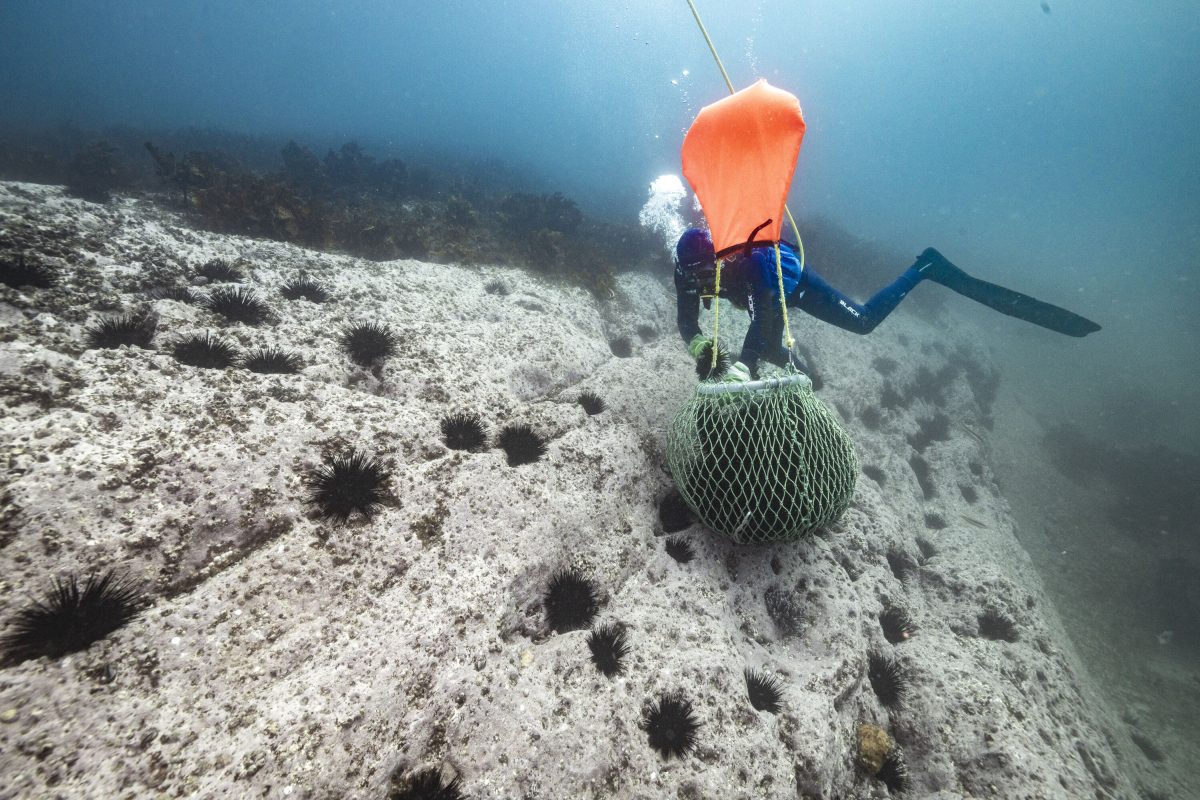
Diving for sea urchins off the coast of Eden. Photo: Stefan Andrews, courtesy Great Southern Reef Foundation.
Abalone divers said they had been forced to start harvesting sea urchin. They needed a new income stream given local harvest quotas for abalone, which depend on kelp, have dropped dramatically.
Mallacoota abalone diver Gavin Hayes said the annual abalone quota had fallen from 19 tonnes to 9 tonnes.
“The cost of removing urchins is substantial but the cost of not doing it is higher,” Mr Hayes said.
Tasmanian urchin processor Dave Allen said 90 per cent of the urchin was waste but it contained boron and calcium which were natural fertilisers. “If we can increase the value of the processing sector and the products, we can have a self-sustaining control mechanism for sea urchins,” he said.
Dr Scott Bennett, co-founder of GSRF, said the reef was recovering in Beware Reef Marine Sanctuary after sea urchins were removed. “The solutions are within our grasp,” he said.
During the panel discussion that followed the screening, an audience member asked if the kelp forests could be restored given climate change. Dr Cayne Layton of IMAS replied that “healthy kelp forests are more resilient to climate change than degraded ones.
“We have to restore the kelp forests in the face of climate change,” he said. “There is a solution with economic opportunities and cultural and social benefits. It is triple bottom line and such a solvable issue.”
Dr Layton said the role of sea urchin predators like the rock lobster and groper had changed over the past 200 years, but they only had a scientific baseline of 50 years “so we need to speak to people with knowledge beyond that”.
Mr Stewart urged scientists and government to work with First Nations people.
“We have knowledge too,” he said. “We need to put our heads together. We know we can fix this problem.”
GSRF is touring White Rock around Australia with community and school screenings the next steps in their impact campaign. Anyone interested in hosting a community screening should contact [email protected]. You can find out more about the documentary here.







